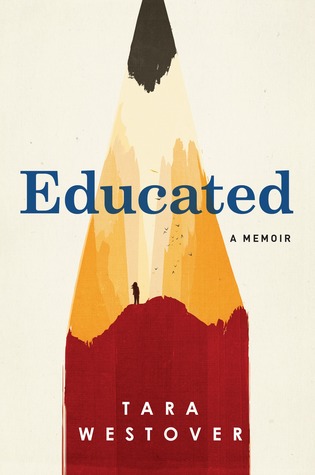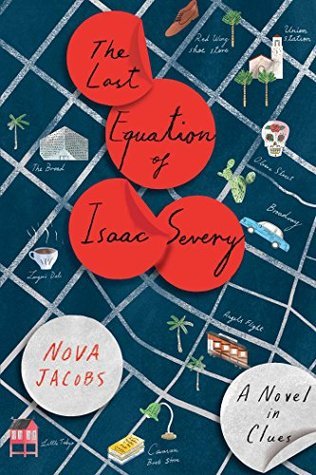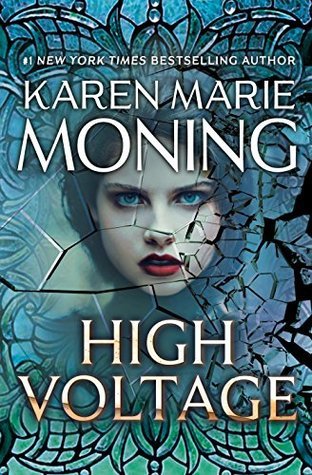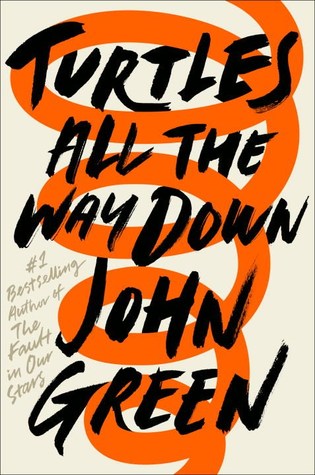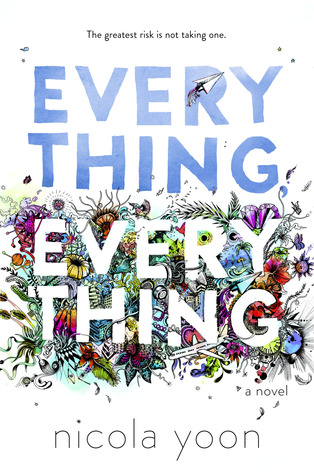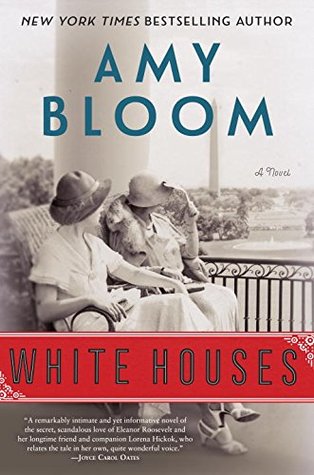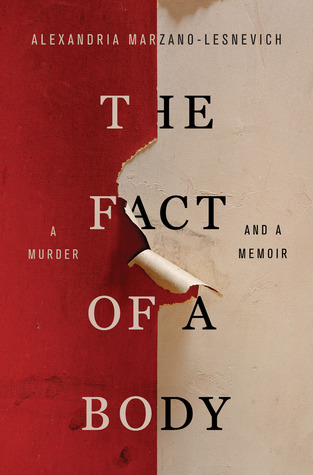Jillian Reads Books
Thursday, April 12, 2018
Suicide Club
I can't recall exactly where I heard about Suicide Club first, but I was drawn to the gorgeous cover and the premise of taking control of one's own death in a world where the prize of immortality is within reach. Thanks to Henry Holt Publishing and NetGalley, I was able to access an ARC in exchange for my honest review!
Suicide Club is a dystopian/scifi novel where immortality is almost within reach, lifespans are in the hundreds, and death is a crime. Our main character Lea is a lifer, with both excellent genes and privileged access to the most cutting edge medical treatments. The near future world she lives in is calm, serene, and optimized to keep stress and cortisol levels to a minimum. Nutripaks provide sustenance, green juice cocktails are served at celebrations (alongside faux styrofoam cakes), and only the most soothing muzak is acceptable.
Basically, it's boring as hell.
I was excited to jump into this world - the idea of immortal life is so compelling, and yet as anyone who's ever read a vampire novel knows, it's also exhausting and soul killing. And so, when immortality becomes the default, taking control of one's own death becomes the subversive radical act of empowerment... not the living of forever. Great premise, for sure. However - and I'm still trying to put my finger on it, but - I couldn't really get invested in the characters. Perhaps the author was trying to model the sterile and disconnected world through her language and pacing, but what happened what that I didn't feel connected to the characters. There was a fair amount that went unexplained, and there were so many other directions I could have seen the story going. If I am imagining so many alternate events and outcomes in a storyline, then I think it's evidence that the author hasn't fully convinced me of the story they intended to tell.
An okay read, but I wouldn't highly recommend it. I also fully expect this review to be in the minority, so bring all your challenges and comments :)
2/5 stars.
Tuesday, April 10, 2018
Educated
“You can love someone and still choose to say goodbye to them,” she says now. “You can miss a person every day, and still be glad that they are no longer in your life.”
No matter how hard I try, I seem to find myself picking up books about trauma over and over and over again... often without even realizing what I am getting myself into. I picked up the highly-anticipated memoir Educated by Tara Westover without knowing much about it, except that it was getting a lot of press. Reading the blurb, I was intrigued, especially given the micro-review from JD Vance, author of Hillbilly Elegy, which stated that Educated was about a forgotten corner of America, or something like that (I can't find the exact quote.) I enjoyed Hillbilly Elegy (not without criticism, of course) so I was excited to dive in and listen to Educated, and expected something along those lines - personal memoir intertwined with sociological/psychological analysis.
Well. Vance could not be more wrong. Let's start with what Educated ISN'T - it's not about forgotten communities, left behind in economic advancement. It's not about conservative religious communities with strong boundaries so as to keep their values and way of life intact. It's not about a girl learning how to learn, overcoming the "odds" or pulling herself by her bootstraps (instead of odds and bootstraps, let's call it what it is - systems of privilege) or even really a "coming of age" saga.
Educated is the story of how a young woman painfully escapes the abusive and controlling environment of her family home, and grows into a strong, resilient, wise woman. Yes - what Westover describes is nothing less than abuse. Isolation, neglect of many kinds, intentional and active exposure to risk and harm, failure to protect, emotional and physical abuse. The list of what she has experienced is truly astounding - and like in many abusive relationships, the more freedom and distance she gained, the more the dangerous her time at home. Educated is also about the danger of isolation and religious extremism, and unchecked mental illness. This is not a family who has fallen off the beaten path - this is a family literally lost in the woods. And this is about how Westover fought to find her way back, and not just to mainstream society, but the upper echelons of the white towers her parents railed against, while coming to terms with how to be in relationship to a family so very opposed to who she becomes.
I highly recommend this memoir - Westover is an excellent writer, and portrays her family with love and respect, even as she details the horrors they visited upon her. She's also clearly an extraordinary human, with resilience and grit and grace worth admiring.
5/5 Stars.
PS... a plug for the audiobook, read by Julia Whelan, who is truly talented at bringing distinct life to different character's voices without making them caricatures.
Thursday, March 15, 2018
The Last Equation of Isaac Severy
The minute I read the synopsis for The Last Equation of Isaac Severy, I moved it all the way to the top of my to-read list. A death, a mystery to be solved, a solution with the potential of far-reaching consequences? It sounded like exactly what I felt like reading. I popped over to NetGalley to see if I could request it (despite the fact that it had JUST been published!) and lo and behold, not only was it available, my wish was granted almost immediately! So thank you, Touchstone, for the opportunity to read this book in exchange for an honest review.
Part of what attracted me to this novel was that it reminded me of others that I've loved - including Mr. Penumbra's 24 Hour Bookstore, and possibly even Ready Player One, in terms of there being a race to solve a mystery, with an unlikely hero competing against more highly trained and resourced adversaries. However, Equation adds in a healthy dose of inter-generational family drama, which is also one of it's downfalls - for about the first third of the book, I had a difficult time tracking the family members and keeping them and their relationships to each other straight in my mind. That being said, it didn't keep me from enjoying the book. The characters are well developed, the twists and puzzles well thought out, and the solution of the final equation distinctly terrifying to consider. Additionally, author Nova Jacobs is an alum of USC (Go Trojans!) and her knowledge and love for Los Angeles is palpable in her descriptions of the city and it's various parts.
Very fun read, and would be a great book club selection, as there's lots of characters and relationships to dissect as well as themes relating to the pursuit of knowledge and the role of fate versus self-determination on large and small scales.
4/5 stars.
Wednesday, March 14, 2018
High Voltage
I *loved* this book. I've been a fan of Karen Marie Moning's Fever series for several years now, and although I've eagerly looked forward to every new installment, I haven't totally loved the last couple, but read them faithfully anyways. I had actually forgotten about this one until I received my order confirmation from pre-ordering months ago (whoops!) and it popped up on my Kindle. I was engrossed in something else so it took me a few days to get to it but then... I fell in love.
High Voltage is a continuation of the series arc that focuses specifically on Dani O'Malley, the spirited teenaged-now-young-adult sidhe-seer sidekick to main series protagonist MacKayla Lane. Moning's first book focused on Dani apparently received tremendous negative feedback, as it was written from 14yo Dani's perspective and contained what some thought to be inappropriate sexual overtones for her age. I didn't love it, but I didn't hate it either. This one though, might be my favorite of the whole series. I won't say much more (because who can make sense of a review about book #10 in the series if you haven't read the previous books?) but it's ultimately hopeful and loving and I absolutely cried. If anything, the action and drama fall second to the character and relationship work in this book, which was a lovely departure in some ways from tracing the many (many, many, many) threads and story lines contained in this universe. The ending was a little ridiculous and over the top - but I'm here for it, and now eagerly awaiting installment #11. I won't forget about it next time.
5/5 stars,
Wednesday, March 7, 2018
Love and Ruin
"It may be the luckiest and purest thing of all to see time slow to a single demanding point. To feel the world rise up and shake you hard, insisting that you rise, too, somehow. Some way. That you come awake and stretch, painfully. That you change, completely and irrevocably - with whatever means are at your disposal - into the person you were always meant to be."
As a fan of Paula McLain's previous works, I was thrilled to receive an ARC of her newest book, Love and Ruin, from Random House, in exchange for an honest review (thanks Random House!). I jumped into it right away, needing a break from my big YA kick as of late and hoping that some historical fiction / romance would be the cure.
McLain does not disappoint. She's adept at taking historical figures and fictionalizing them in a way that is loving and respectful, even when the picture she is painting isn't always beautiful. This time around her subject is Martha Gellhorn and Ernest Hemingway, as she traces their love story from its illicit beginnings during his marriage to second wife Pauline Pffifer through to it's (yes, you guessed it..) ruin. I had a passing familiarity with Gellhorn as a journalist, but didn't know much about her, at least in comparison to Hemingway, and this is a theme in the novel - the ways in which Hemingway's star burned so brightly that it drew everything to it while simultaneously eclipsing it. McLain's written about Hemingway before, in The Paris Wife, but here it takes a turn. While in that narrative, we watch through first wife Hadley's eyes as their marriage crumbles apart, in this novel, we watch from Martha's perspective as she comes into her own as a writer, and Ernest begins to crumble. Martha was truly a woman before her time, and it's clear in the novel that Hemingway struggled with her strength and desire to cultivate a career and a life as a writer and war correspondent in a time period where she was breaking barriers and norms. Frankly, Hemingway comes across as quite the asshole throughout the novel, self absorbed, unable to empathize or see Martha's perspective, and petulant when he doesn't get his way. Even through these moments, it's made clear that their love was deep and real, even if it couldn't withstand the internal strain and external pressures placed upon it.
Overall, a really lovely read. I'm a fan of McLain's style, and after three excellent novels in a row (including Circling the Sun), I'm excited to see who's inner life she shines a light on next.
4/5 Stars.
Monday, March 5, 2018
Nasty Women
"If you’re an intellectually honest American, at some point you have to find a way to live with the knowledge that this country was founded on genocide, slavery, and misogyny. Every majestic national park was stolen from a murdered and exiled people. Some of our most beautiful historic buildings were constructed by the hands of human beings brought here in bondage. Nearly every “Great Man” we celebrate was raised by a woman working for free, then married to another woman who kept his house and raised his kids for free. This is the America we all know."
I wanted to love this book so hard! Nasty Women, edited by Samhita Mukhopadhyay and Kate Harding, brings together some of the best contemporary feminist thinking in the wake of Trump's election, from a wide variety of viewpoints and perspectives. Together, they paint a worrisome picture about the erosion of rights and rise in safety concerns for those negatively impacted by the president's policies and platforms, which is.... pretty much anyone not wealthy, white, or male. Many of the narratives are deeply personal - in fact, it's these chapters that pack the most punch. My favorites included "As Long As It's Healthy" by Sarah Michael Hollenbeck, which discusses fertility and living with disabilities, Sarah Hepola's "Refusing to Numb the Pain," about managing anxiety (or not) with alcohol, and Sady Doyle's "The Pathology of Donald Trump," which takes to task our labeling of Trump as mentally ill as a way of discrediting him. I also loved "All American" by Nicole Chung, and "X Cuntry" by Randa Jarrar.
Overall, there is so much to love about this anthology. Maybe because I spend so much time reading feminist cultural and political critique already, there was also a lot in here that wasn't "new" to me, or didn't challenge my position or concerns about our current president, and I found myself skimming through quite a few chapters in order to get to the next one.
3/5 stars.
Friday, March 2, 2018
You Don't Have to Say You Love Me
I finished You Don't Have to Say You Love Me back in January, but haven't gotten around to writing about it just yet. This book was recommended by a friend, and specifically the audiobook, read by the author Sherman Alexie, for it's poetic and lyrical prose. This was also my first introduction to Alexie, a well known author whose works focus on the contemporary experience of Native American families living on and off the reservation.
There was a lot I enjoyed about this book - the chapters are short, some of them essentially poetry, and the narrative is non-linear, which made it very easy to jump in and out of the sotry as I was also reading (multiple) other things at the same time. Alexie talks about his life growing up, his family, the trauma and abuse he suffered, and the long term impact of these experiences on his current mental and physical health. What's most remarkable is that Alexie does so with so much love and compassion, as his traumas are not just his own, but historical traumas shared by his community and family.
There were times where this was difficult to listen to - I made the inadvertent mistake of listening to this while also reading two other books that focused on trauma and abuse, and it was too much for me at times. The audiobook also felt very looonnnggg to me, and I wonder if I would have felt the same way if I had read it in written form. Overall - beautifully written account of the power of trauma (historical and current) to shape and transform lives and communities.
3/5 Stars.
Thursday, March 1, 2018
Turtles All the Way Down
“You know I love you, right?” I nodded. “My whole life I thought I was the star of an overly earnest romance movie, and it turns out I was in a goddamned buddy comedy all along. I gotta go to calc. Good to see you, Holmesy.”
I have read a LOT of YA lately. Depending on your criteria 7 of the 16 books I've finished this year have qualified as young adult novels (obvi, more reviews forthcoming) and I'm thinking maybe I need a break from the genre for a little bit. However, as a huge fan of The Fault in our Stars, I was excited to read Turtles All the Way Down, John Green's follow up novel to that smash hit, so I picked it up as soon as it landed in my library queue, despite my YA fatigue.
Turtles centers on Aza Holmes, a young woman struggling with a significant but unspecified anxiety disorder. More than anything, Green's characterization of Aza's anxiety is what makes this book remarkable - from the way in which he describes her intrusive thoughts, to her destructive actions, and the ways in which her relationships are impacted by her anxiety - readers who have experienced similar symptoms will resonate with Aza in her ever-tightening spiral, as she navigates friendships, family, and romance, with a mystery thrown in for some extra drama.
It's difficult for me not to compare Turtles to Stars, but I think they diverge in some significant ways. Although there are romantic storylines here, the primary relationship and driving force in the novel is that between Aza and her best friend Daisy, and I don't think I will ever tire of reading about complex female friendships. Turtles is a much more internal book, with a significant amount of the "action" occurring in Aza's mind. Although the books lacks some of the emotional punch of Stars, (I did not cry), Turtles is still well worth the read, and will hopefully be a validating and hopeful reading experience for those struggling with anxiety.
Wednesday, February 14, 2018
Everything Everything & The Sun is Also a Star
Loved these two books! I'm choosing to review them together because they share similar themes, and I reach them back to back in about three days. Such great YA romances. They've been on my shelf for a while, and I finally decided to pick one up as an easy read while I wait for some library holds to come in.
First, Everything Everything, which I read first, and I am glad I did, because it's my less favorite of the two. Everything Everything (Everything Squared?) centers on Madeline, the girl living in a bubble, allergic to the world. There's a lot in this book that's relatively formulaic for YA romance - two adolescents, love at first sight grows despite significant barriers, lots of witty banter and impressive teenaged vocabulary, a few twists and turns. That being said, I still really enjoyed it. The story is interspersed with little drawings and diagrams, which I thought were super cute and made the book feel a little more original, and helped to balance out some of the heavier themes of what makes life meaningful, and what we do for the sake of love and family. If you loved The Fault in Our Stars (which I did), you'll like (hopefully love!) this book.
Which of course, I did enough to immediately move onto Yoon's second book, The Sun Is Also A Star, which I loved EVEN MORE than Everything Everything. This books features all new characters, but rather than tackling illness, it tackles immigration and deportation, features two protagonists of color, and is deepened by the alternating perspectives of those characters, rather than just being told from one side of the story. I fell in love with Natasha - her tough demeanor, her taste in music, her rational and scientific view of the world... she's exactly the kind of teen girl I want to read about. Yoon expands her style here, too; in exploring the theme of cause and effect, she includes vignettes from characters that cross the paths of our two main characters, in ways that trace back to our heroes and their journey together. Although there were a few threads that were a bit of a stretch, I was invested enough in the story to buy into these interconnections, however tenuous. Because who hasn't wondered - what if I had turned left instead of right? What if I had answered that phone call, or taken that trip, or whatever the thing is that lead down the alternate path? That's what makes it such a compelling narrative device, albeit one that is easy to abuse or misuse. In this case, I'm a believer, and will from now on look forward to reading just about anything that Yoon publishes.
Everything Everything, 4/5 stars
The Sun Is Also a Star, 5/5 stars
Tuesday, February 13, 2018
White Houses
Thank you Random House for the opportunity to read White Houses before it's publication date. As a fan of Eleanor Roosevelt's, I jumped at the chance to read this novelization of her love affair with Lorena Hickok, a well know journalist who evenutally moved into the White House as the "first friend." I had a vague awareness that Eleanor had been know to have female partners, but was not familiar with the details of her love life outside of her marriage to FDR. And I wanted to love this book - however, it left me wanting.
White Houses is told from the perspective of Lorena, or Hick, as she is known, as she comes to comfort Eleanor in the days after FDR's death. Hick's experience of the present moment is interwoven with her memories of her childhood (abusive, neglectful) and her early relationship with Eleanor (passionate, largely accepted) and their eventual undoing. There are some fantastic quotes from Eleanor ("the function of democratic living is not to lower standards but to raise those that have been too low") and some juicy, heartbreaking, but ultimately not surprising tidbits about FDR's own extramarital romances, but ultimately I could not get deeply invested in the characters, however well-known or familiar they may be. Everything about the book carried the feeling of misty, water-colored memories, but perhaps because of that, made it difficult to connect with. There were a few standout moments of romance though, and one of the strengths of the book is the passion between Eleanor and Hick, and the ways in which Bloom describes the beauty of two middle aged women coming together in love, which I've not often encountered in my reading - not necessarily the sexualized part, but just the idea of seeing an aged woman's body as beautiful and sensual - that was powerful.
Overall, a sweet read, but not one I'd likely revisit... although, maybe I'd see it differently after a more biographically focused book about Eleanor to fill in some of the space in her public life.
3/5 stars.
Little Fires Everywhere
(It came, over and over, down to this: What made someone a mother? Was it biology alone, or was it love?)
I'm not sure if there was a more loved book in 2017 than Little Fires Everywhere. It had been on my to-read list for some time, but the stars aligned in January as the new book club I discovered (yay!) picked it as February's to-read right at the time that my hold was finally coming due from the library. That plus a long plane flight gave me ample time to settle in to the story.
Little Fires Everywhere an enjoyable read, and likely one that gains depth and nuance with each retelling. Ng explores the areas of tension that arise when two family's paths cross - the messy spaces where structure and planning collide with an artist's wandering natures, where teenagers fall in love and lust, and where secrets are created and unearthed in surprising ways. More than anything, what I loved about this book was the exploration of what it means to be a mother, and to be mothered - and of course, there's no clear answer, but Ng does an incredible job of drawing out the various relationships, always with love and complexity. This is the kind of book where it's truly the characters driving the action, and not the action driving the characters. I especially loved the relationship between Izzy and her mother - which I won't go into detail about why, because I cannot do it justice the way Ng does.
My biggest piece of critique is the storyline of Mirabelle, who is introduced in the beginning and then her thread is dropped until it picks up speed again (and fast) in the last third of the book, where it felt a little jarring to me. I had actually forgotten about her and had to take a beat to remember who was being reintroduced and why. Other than that, this was a lovely read, and I'm very much looking forward to discussing it in depth at book club next week!
4/5 stars.
Tuesday, January 23, 2018
My Absolute Darling
My Absolute Darling by Gabriel Tallent. Ohhhhhhhh fuck this book. I'm surprised I finished reading it.
Let me start with what I liked about it. I liked the cover; the design is beautiful, and I'd heard about this book often enough to place it on my library hold list. The main character, Turtle, is compelling in her fierceness and feralness. That's about it.
What did I not like about the book? Well, pretty much everything else. The depiction of trauma rang so false to me - enough to be actually upsetting. I read this on my kindle, which allowed me to do a word count, which I did because I because I was curious whether or not I was overreacting to the language used and nope, not overreacting - this book uses the word cunt 16 times, slit 29 times, and bitch 63 times. SIXTY THREE TIMES. Look, I get that internalized misogyny is a result of trauma, and I've met men who speak about women the way that Martin does in this book. You might even say that after working in the field for, oh eight years or so that I know a little bit about trauma and abuse. And I get that Turtle's internal monologue is meant to represent just how ingrained in her Martin's voice is. But it's too much, and a more skillful writer would have shown it, not told it, over and over and over again. And the description of Brett's mother when we first meet her. Can someone explain to me what the shape of her labia have to do with her character? She works in a nudist colony, cool cool. I still don't know what her labia have to do with the story, because basically, we never come back to her. The teenaged boys are relatively flat characters, lacking much complexity beyond a Gilmore Girls-style ability for banter. And the ending? Where was Jacob? So much of the ending revolves around him and yet... he's not there and it's NEVER ADDRESSED where he was. What the actual fuck?
Please don't read this. Instead, take the $13.99 or whatever you would spend, and donate it to an organization that actually helps support trauma victims, like RAINN. And if you still want to read a story about resilience through trauma, go pick up The Fact of a Body instead.
The Fact of a Body
"I have been driven all along by the belief that there is a knot at the heart of the collision between me and Ricky that will help me make sense of what will never be resolved. The way my body is evidence. The way I carry what my grandfather did in my body. I carry it through my life."
The Fact of a Body, by Alexandra Marzano-Lesnevich is a memoir intertwined with a a true crime story, and is unlike anything else I can recall reading. The author, an attorney, finds herself drawn to a death row case that challenges her belief that no person should die for their crimes, no matter how heinous. Through her research of the case, through tens of thousands of pages of documents, interview, videos, and photographs, visits to the small town where the crime occurred, and conversations with the killer himself, Marzano-Lesnevich is forced to confront her own abusive past and how it has formed her into the person she is today. Painful to read, the book alternates between perspectives as Marzano-Lesnevich reconstructs the murder of a young boy in Louisiana and his killer's trail with her own experiences as a survivor of childhood sexual abuse.
The two crimes at first appear so different. On one hand, we have a young boy in an impoverished town murdered by a man with a documented history of sexual violence. On the other, a young girl, from a well-known family in a picture perfect town, abused by her grandfather for years. Initially the only common thread we see is the sexual violence; however, Marzano-Lesnevich skillfully draws out common themes of intergenerational trauma and loss, what drives a family to protect its own, secrecy, and the slippery nature of love and forgiveness. The writing is lovely, descriptive, and methodical. The author never veers into the exploitative, and even when describing moments of great harm or pain, does so with gravity, respect, and yes, even empathy, for all involved. More than anything, I loved the ways in which she explored these complicated grey areas, whether created by law or emotion. "Forgiveness is too simple a word. They helped make me. They did such harm." Both of these things can be true, and perhaps, there can be healing in acknowledging the spaces between.
4/5 stars.
Subscribe to:
Posts (Atom)

